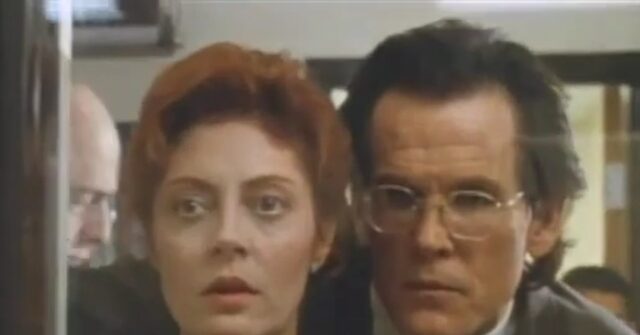CV NEWS FEED // A woman is speaking out after her brother, an organ donor, woke up just before his own organ retrieval surgery at a Kentucky hospital. He had initially been declared “brain dead.”
Donna Rhorer has been caring for her brother, Anthony Thomas Hoover II, now 36, for the past three years since the terrifying incident occurred, according to an October 17 report from local news outlet WKYT.
WKYT reported that the Kentucky Attorney General’s Office is investigating the case.
According to NPR, the federal Health Resources and Services Administration is also investigating.
In October 2021, Hoover suffered a cardiac arrest and was rushed to an emergency room at Baptist Health Richmond hospital, some 30 miles away from Lexington, Kentucky.
Rhorer told WKYT that on that day, his family was “told there were no reflexes, he had no reflexes, there was no brain activity, no brain waves.” The family decided the next day to remove Hoover from life support, and as an organ donor, Hoover’s body was prepared to undergo an organ retrieval surgery.
Two days later, the morning of the surgery, Rhorer explained that her brother’s eyes started opening during his honor walk, which is a ceremonial walk around the hospital for a donor whose organs are going to be procured.
“He was tracking,” she said. “His eyes were tracking us around.”
“We were told it was just reflexes, just a normal thing,” Rhorer said. “Who are we to question the medical system?”
Rhorer said that an hour after Hoover was taken in for the surgery, the doctor came out and told the family that Hoover had woken up. The doctor told Rhorer to take Hoover home, and that he would not live much longer. According to NPR, Rhorer is now Hoover’s legal guardian.
Just this year, Rhorer learned from Nyckoletta Martin, who worked with the Kentucky Organ Donor Affiliates (KODA) at the time of the incident, that on the morning of the day Rhorer’s surgery was supposed to take place, he had woken up during his heart catheterization.
Rhorer told WKYT that the family had not been informed of this that day.
“If we had known that, then clearly we would have known he wasn’t brain dead,” Rhorer said. “He made several attempts to say, ‘Hey, I’m here.’ But it was kind of ignored. They finally stopped the procedure because he was showing too many signs of life.”
Natasha Miller, who was set to preserve the donated organs, told NPR that when Hoover was in the surgery room, “[h]e was moving around — kind of thrashing. Like, moving, thrashing around on the bed. And then when we went over there, you could see he had tears coming down. He was crying visibly.” The surgeon who was going to retrieve Hoover’s organs then refused to do so.
Miller claims she overheard the case coordinator call the KODA supervisor for guidance, and the supervisor told the coordinator to find another doctor to perform the surgery.
The CEO and President of Network for Hope, which is a rebranded organization that KODA merged into with another company, has contested the notion that KODA employees would be pressured to procure organs from a living human.
“No one at KODA has ever been pressured to collect organs from any living patient,” Network for Hope CEO Julie Bergin said in a statement, NPR reported. “KODA does not recover organs from living patients. KODA has never pressured its team members to do so.”
In a statement to WKYT, Network for Hope explained that Organ Procurement Organizations (OPOs) “do not declare death.”
“OPOs only have the authority to proceed with organ donation recovery after a patient‘s independent healthcare provider has declared death,” the statement added.
Catholic ethicists and medical professionals took a stand earlier this year against current criteria used for determining “brain death,” as CatholicVote previously reported. The most recent criteria from the American Academy of Neurology (AAN) allow for a person to be declared “brain dead” even if there is evidence that the hypothalamus, a part of the brain, is functioning.
>> Catholic ethicist decries lax ‘brain death’ standards used by organ harvesting industry <<


 By CatholicVote | Created at 2024-10-19 09:48:08 | Updated at 2024-10-19 12:39:44
2 hours ago
By CatholicVote | Created at 2024-10-19 09:48:08 | Updated at 2024-10-19 12:39:44
2 hours ago



